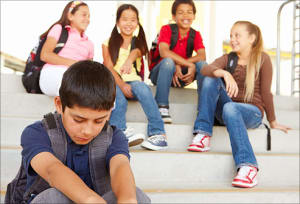
School, Peer
How parents can help
As kids navigate friendships and cliques, there's plenty parents can do to offer support. If your child seems upset, or suddenly spends time alone when usually very social, ask about it.
Here are some tips:
Talk about your own experiences. Share your own experiences of school — cliques have been around for a long time!
Help put rejection in perspective. Remind your child of times he or she has been angry with parents,
Shed some light on social dynamics. Acknowledge
mean and put others down because they lack self-confidence and try to cover it up by maintaining control.
Find stories they can relate to. Many books, TV shows, and movies portray outsiders triumphing in the face of rejection and send strong messages about the importance of being true to your own nature and the value of being a good friend, even in the face of difficult social situations. For school-age kids, books like "Blubber" by Judy Blume illustrate how quickly cliques can change. Older kids and teens might relate to movies such as "Mean Girls," "Angus," "The Breakfast Club," and "Clueless."
Foster out-of-school friendships. Get kids involved in extracurricular activities (if they aren't already) — Martial Arts is a great choice. Martial Arts schools are Bully Proof Zones, kids treat each other with respect and kids are part of a positive team of role models.






